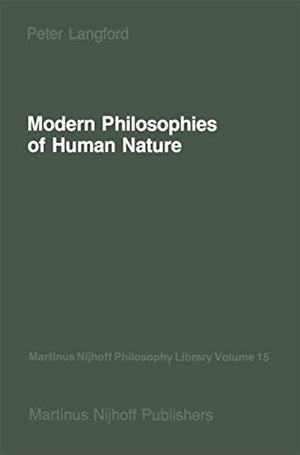Für statistische Zwecke und um bestmögliche Funktionalität zu bieten, speichert diese Website Cookies auf Ihrem Gerät. Das Speichern von Cookies kann in den Browser-Einstellungen deaktiviert werden. Wenn Sie die Website weiter nutzen, stimmen Sie der Verwendung von Cookies zu.
Cookie akzeptieren
- Springer Netherlands
- 1986
- Taschenbuch
- 272 Seiten
- ISBN 9789024733712
General Argument My aim is to survey some of the most influential philosophical writers on human nature from the time that Augustine codified Christian belief to the present. During this period philosophical opinions about human nature underwent a transformation from the God-centered views of Augustine and the scholastics to the human-centered ideas of Nietzsche, Freud and Sartre. While one aim has simply been to provide a handy survey, I do have three polemical purposes. One is to oppose the notion that the modernism of more recent writers was produced by methodological innovations. According to both Freud and Sartre, as well as other key figures like Lacan
Mehr
Weniger
zzgl. Versand
in Kürze